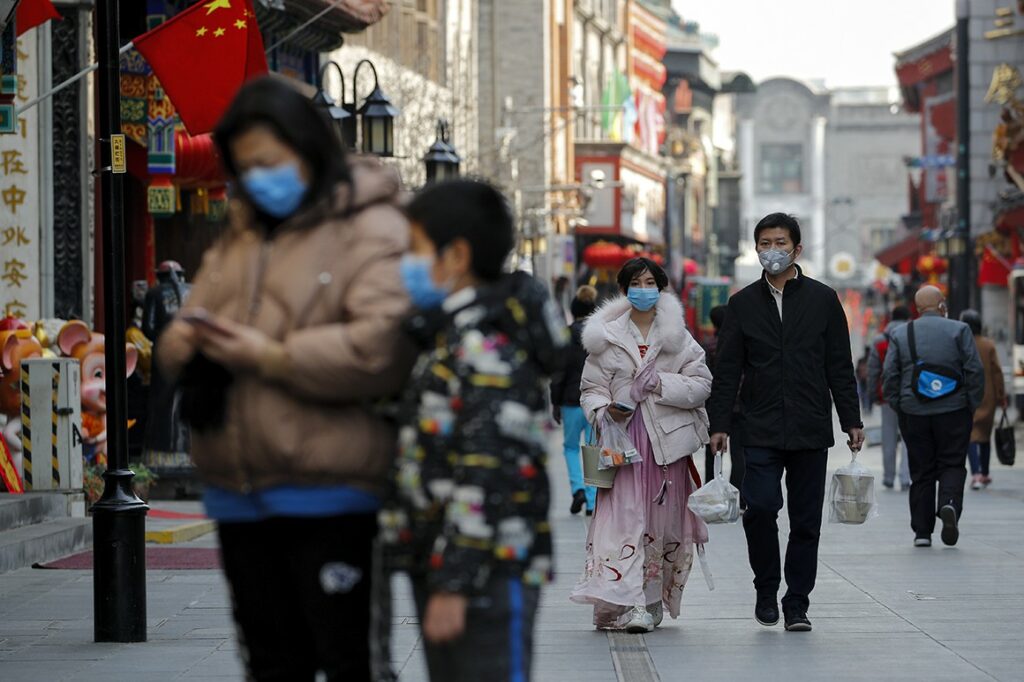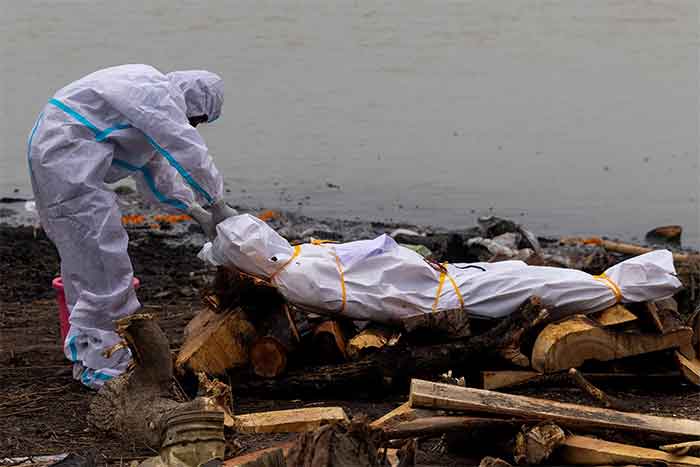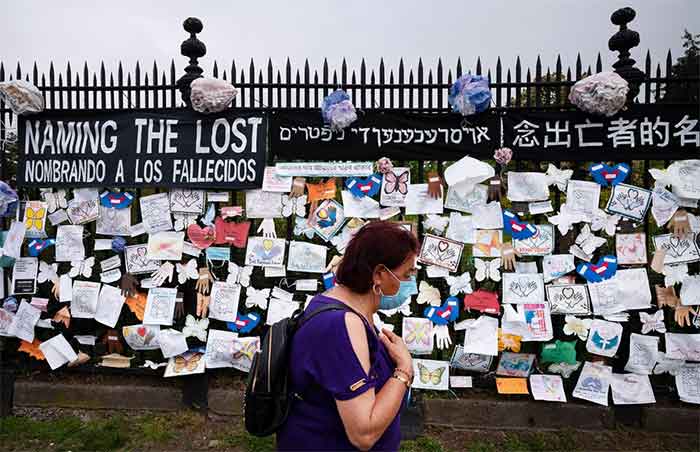
The spread of COVID-19, popularly known as Coronavirus, is taking strange turns. The coronavirus crisis in China is improving while it is spreading in other countries including the U.S. The worldwide death toll, up to March 2, 2020, topped 3,000, and the number of cases tops nearly 90,000 in about 80 countries. However, world health officials sought to reassure the public that the virus remains a manageable threat.
Reports by international media including Associated Press and Reuters said:
China’s coronavirus caseload continued to wane Tuesday even as the epidemic took a firmer hold beyond Asia, with three countries now exceeding 1,000 cases and the U.S. reporting its sixth death.
The Chinese health ministry announced just 125 new cases detected over the past 24 hours – the country’s lowest number since January 20.
Another 31 deaths were reported, all of them in the hardest-hit province of Hubei in China.
The figures bring China’s total number of cases to 80,151 with 2,943 deaths.
The global shift in the COVID-19 epidemic was apparent with 2,410 recovered patients were released from Hubei’s hospitals and treatment centers.
Many of these hospitals and treatment centers were built hastily over recent weeks to cope with the thousands of people sickened by the virus.
But new infections outside China were far surpassing its totals.
Clusters of the disease grew in South Korea, Italy and Iran. The virus has turned up for the first time in New York, Moscow and Berlin. It has also spread to Latvia, Indonesia, Morocco, Tunisia, Senegal, Jordan and Portugal.
6 deaths in U.S.
Health officials in Washington state, where a particularly troubling cluster of cases surfaced at a nursing home outside Seattle, said four more people had died from the coronavirus, bringing the number of deaths in the U.S. to six, all in Washington.
New cases were reported in New Hampshire and New York. More cases are centered in California, Oregon, and Florida.
In Seattle, King County Executive Dow Constantine declared an emergency, and said the county is buying a hotel to be used as a hospital for patients who need to be isolated.
“We have moved to a new stage in the fight,” he said.
Over 100 cases have been confirmed in the U.S. More are likely with thousands of test kits going to state and local labs and new guidelines to expand screening.
“In this situation, the facts defeat fear. Because the reality is reassuring. It is deep-breath time,” New York Governor Andrew Cuomo said.
Worst hit areas: South Korea Iran Italy Japan
The World Health Organization (WHO) said on Monday that its greatest coronavirus concerns were South Korea, Italy, Iran and Japan, but that it was still possible for all countries to contain the virus.
South Korea on Tuesday reported 477 new cases, bringing its totals to 4,812 with 29 deaths. Most are in the southeastern city of Daegu and neighboring towns.
In Iran, a confidant of Iran’s supreme leader died from the virus.
The Islamic Republic confirmed 1,501 cases and 66 deaths, but many believe the true number is larger. Its reported caseload surged more than 250% in just 24 hours.
Italy’s caseload rose to 2,036, including 52 deaths. Officials said it could take up to two weeks before they know whether measures including quarantining 11 towns in northern Italy are slowing the spread of the virus.
A World Health Organization (WHO) team arrived in Iran on Monday to support authorities and deliver 100,000 diagnostic tests and protective gear for 15,000 health workers, the agency said.
South Korea has the second-highest national total of cases, behind China. A majority of the cases have been linked to a secretive religious sect in the city of Daegu.
Italy has the third-highest national total. The epicenter is in the northern region of Lombardy.
Manageable threat
Global health officials, echoing the NY Governor Andrew Cuomo’s message, said they were encouraged that even in some countries that had taken far less aggressive measures than China’s to contain the spread, the virus remains largely in check,. The global health officials sought to reassure the public that the virus remains a manageable threat.
Because the virus is not transmitted as easily as the flu, “this virus can be suppressed and contained,” said Dr. Mike Ryan, the WHO’s emergencies chief.
“Containment is feasible and must remain the top priority for all countries,” WHO director-general Tedros Adhanom Ghebreyesus said.
“Our message to all countries is: this is not a one-way street. We can push this coronavirus back,” he told reporters. “Your actions now will determine the course of the COVID-19 outbreak in your country. There’s no choice but to act now.”
The WHO chief said the spread could be halted – unlike seasonal influenza.
“We are in uncharted territory – we have never seen before a respiratory pathogen that is capable of community transmission but at same time which can also be contained with the right measures,” Tedros told a news conference in Geneva.
“If this was an influenza epidemic, we would have expected to see widespread community transmission across the globe by now and efforts to slow it down or contain it would not be feasible.
“But containment of COVID is feasible and must remain the top priority for all countries.”
Of the 8,739 cases reported by 61 countries outside China, 81% are in just four countries, he said.
Among the other 57 affected countries, 38 have reported 10 cases or fewer, 19 have reported only one case, and “a good number have already contained the virus”, Tedros added.
Dr. Mike Ryan said: “There are a very small number of countries in which we have demonstrated and established community transmission.”
Containment and significantly slowing down the spread of virus allows health systems and laboratories to prepare and for drugs and vaccines to be developed, he said.
Ryan said extreme measures taken by authorities in Wuhan to halt the virus were probably not needed elsewhere, and noted countries had different levels of “social acceptance”.
“Certainly it is clear in the likes of Singapore for example, if you take another example outside, in Hong Kong, that measures that have not involved walling off cities or completely banning travel, have been very effective in both suppressing and driving transmission down over the last six weeks.”
Tedros, referring to moves to allow supplies to enter Iran despite sanctions over its nuclear program, said: “I would like to commend actually the statement from the United States in support of Iran.
“I think we have a common enemy now. And using health, and especially fighting this virus, as a bridge for peace is very, very important.”
Daily routine reshaped
Around the world, the crisis reshaped the daily routines of millions of people.
School children in Japan stayed home with schools closed until April.
Israelis in quarantine used special booths to vote in national elections.
Germany’s Chancellor Angela Merkel was rebuffed by her interior minister when she extended her hand to greet him.
The United Nations has postponed a major conference on women that had been expected to bring up to 12,000 people from its 193 member countries to New York next week.
World economy to contract
The Organization for Economic Cooperation and Development warned that the world economy could contract this quarter for the first time since the international financial crisis more than a decade ago. “Global economic prospects remain subdued and very uncertain,” it said.
Nevertheless, the Dow Jones Industrial Average soared nearly 1,300 points, or 5%, as stocks roared back from a seven-day rout on hopes that central banks will take action to shield the global economy from the effects of the outbreak.
Finance ministers and bank leaders from the Group of Seven major industrial countries said they would confer by phone Tuesday to discuss an economic response.
China in January imposed a virtual lockdown around Hubei’s capital, Wuhan, where the illness was first detected in December and which has been the epicenter of the outbreak.
Many countries have canceled or curbed public events and discouraged travel to virus hotspots, but quarantines and similar restrictions have been on smaller scales, focused on those directly exposed.
SIGN UP FOR COUNTERCURRENTS DAILY NEWS LETTER

















































